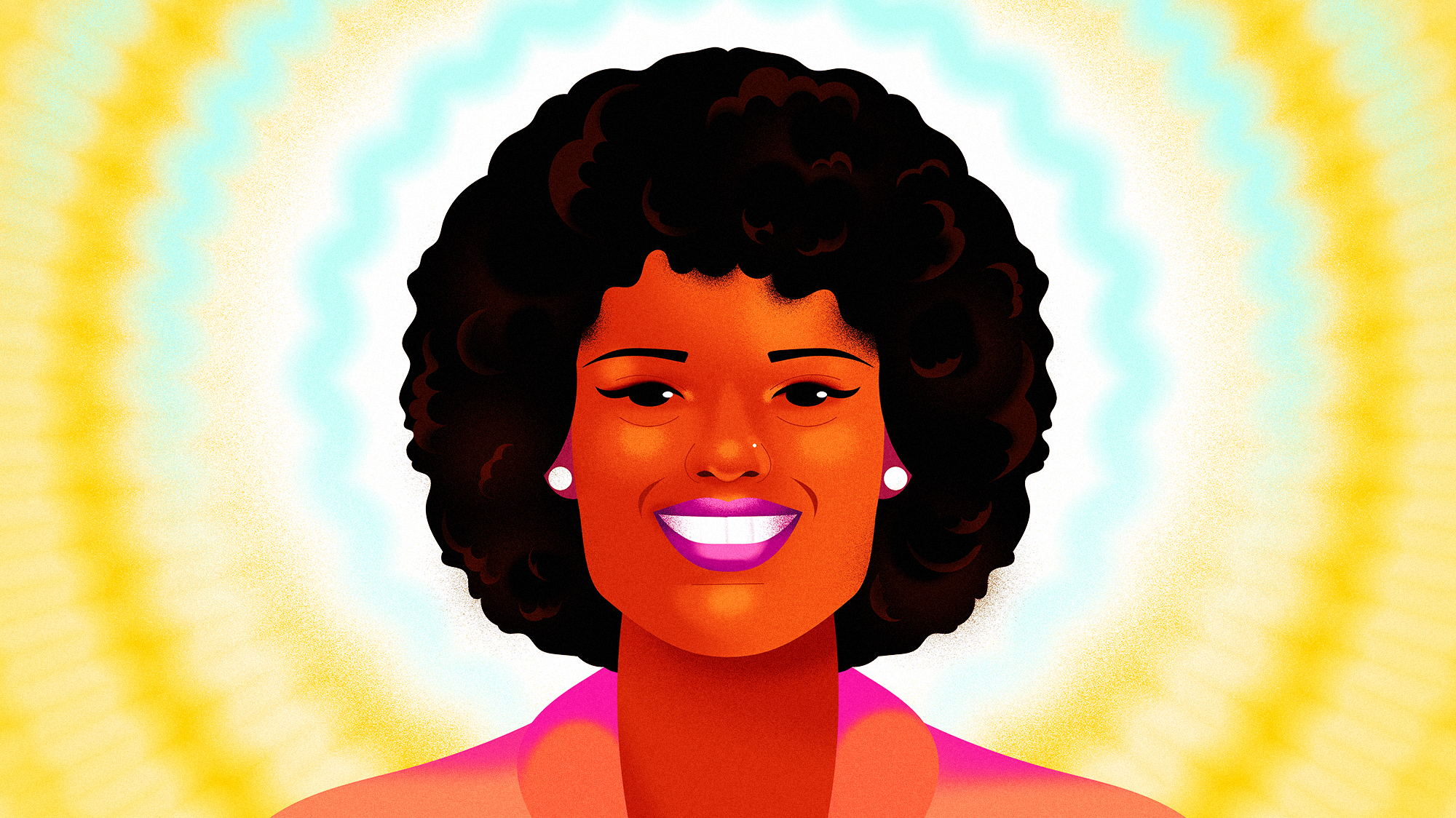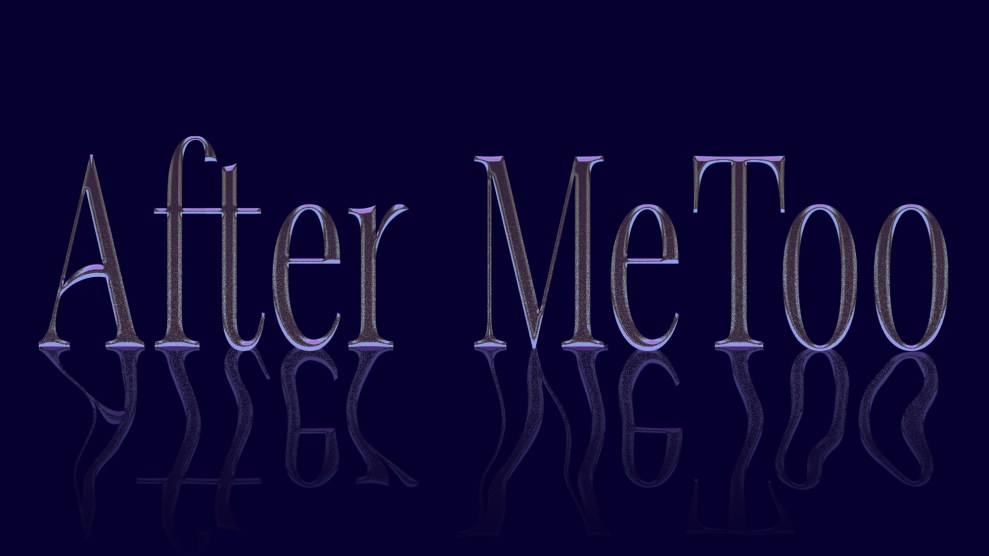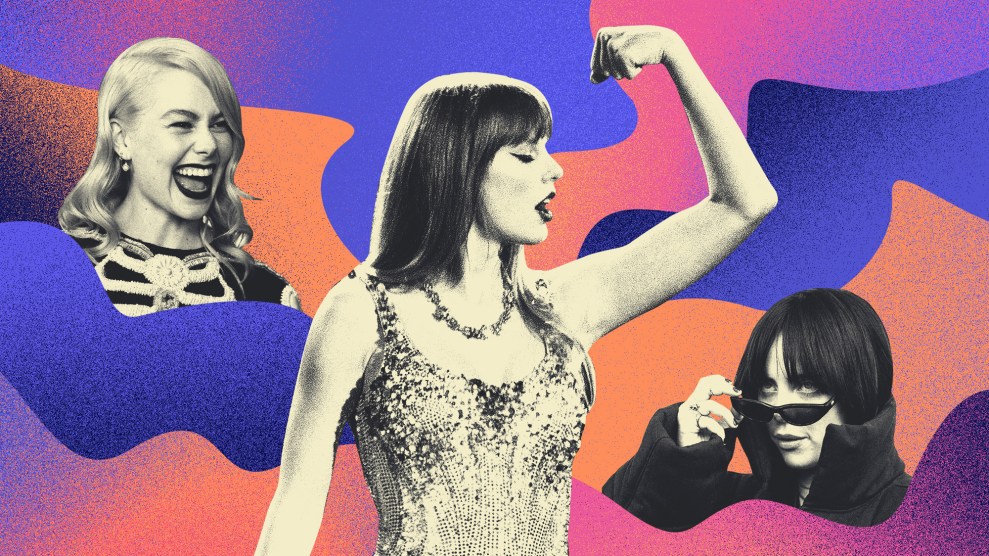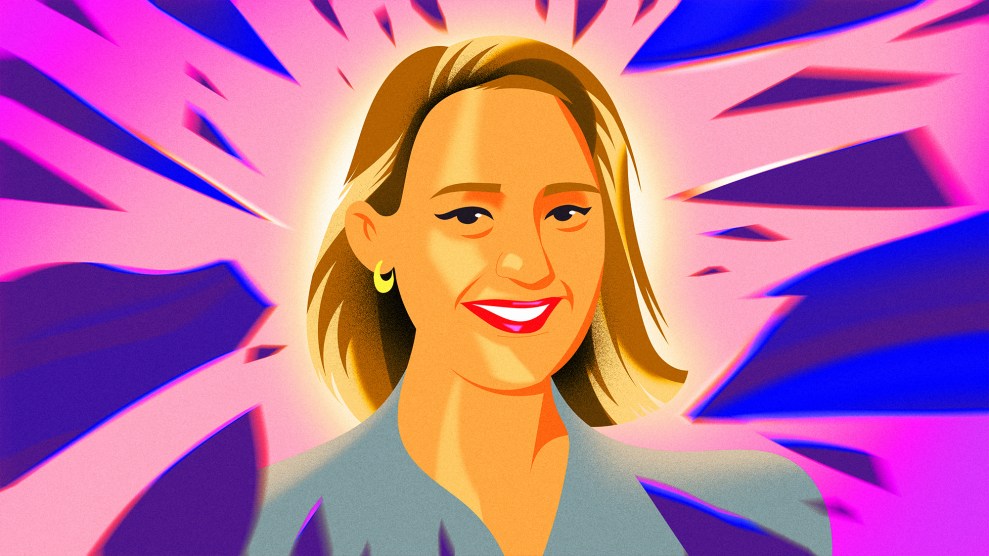More than five years ago, the MeToo movement exploded and our culture shifted. But what actually changed? This project seeks to reexamine the era by asking how it will alter the lives of the next generation.
Nikita Mitchell is the chief strategy officer of Me Too International, an organization founded by activist and advocate Tarana Burke in 2006 to provide resources to survivors of sexual violence. Mitchell grew up in Oakland, where she began her career in organizing. She had nearly 10 years of experience working in racial and educational justice before MeToo inspired her to join the survivor justice movement.
I grew up with a grandmother who told me a lot of stories. My grandmother was raised in northern Louisiana. She did sharecropping, and her father worked at the cotton mill. A lot of the stories would be about racism, just so many stories about the pain and trauma of being a Black woman from the South.
Through those stories, I got really angry, and I didn’t know what to do with that anger. I think I did a lot of things that are typical of teenagers dealing with anger—sipping lean, smoking weed, self-harming in a lot of ways—until I found movement work. There was a really vibrant educational justice movement in Oakland, and it gave me something to do with my anger. It gave me language to describe what I was experiencing and what my family was experiencing, and it gave me something to do with other people to change those conditions.
At that point, being a survivor of child sexual assault was not central to my identity. I was assaulted multiple times. It’s very deep in my experience of growing up, but I didn’t think about it. I was like, I’m Black first. What are the issues that impact Black people? I’m a student. What are the issues that affect students? I’m from a low-income family; let me do union organizing. But being a survivor wasn’t something that I felt was powerful. I didn’t feel safe talking about it, and I didn’t feel like it mattered.
That continued for me—the educational justice, the union organizing. I joined Black Lives Matter Global Network. I was surrounded by really amazing dedicated, committed organizers for almost 10 years, and then #MeToo went viral. And I was watching what felt like this secret that I had, that I felt shameful about, come into the public. It was the scariest and most beautiful thing.
It compelled me to think of myself as a survivor, and to think about why, after 10 years of running campaigns and doing direct action, I feel powerful in many other places in my life, but not in this one. What was behind the fear here?
And what was behind the silence in the movements I’d been a part of? If the statistics are correct, a lot of the people I’ve been in campaigns with are also survivors. Those questions led me to seek the places where people were not only committed to Black liberation, not only committed to safety, not only committed to the leadership of low-income Black women and queer women, but also where they were talking about this thing that has shaped my entire life. That hunger to be at that intersection and to be with other people who were exercising an identity rooted not just in trauma but in resistance led me to Me Too International.
I remember we saw the hashtag, and then we saw Tarana Burke emerge. Tarana Burke, who is like, from the hood, right? A dark-skinned Black woman. It was amazing to see a Black woman talking about these things. It was really important to see her face and hear her voice at the forefront. The development of Me Too as an organization and the cultivation of the hashtag weren’t just random. There were a lot of people behind the scenes who made that possible.
Five years ago, 19 million people said MeToo. In my life, it was so huge to see people say something that I spent a lot of time hiding. So when I think about if today is a different place for survivors, I think about every single person who took a moment, or maybe many moments, to write “Me Too,” and just by their bravery, I think, now we live in a world where you can come and you can say, at least online, “I’ve experienced sexual violence.”
Five years ago I was 24. I had a 1-year-old, and I was married. So there was a way that I perceived myself, like any young twentysomething, to be fully independent. I was very sure of myself. The MeToo movement exposed to me things from my childhood that I was burying so that I could be this independent adult. It brought to the forefront that I have trust issues and struggle with intimacy, and that’s attached to my experience of trauma. So it exposed to me that I was more vulnerable, fragile, and traumatized than I wanted, and than I pretended to be. I was pretending I didn’t need help, that I was independent, that I had everything I needed. But there was this little girl in me who did need help.
It took me off my course, but it was important. If the MeToo movement hadn’t happened, honestly, I would most likely still be married—to a cool person; it’s not about him. But it was a marriage that was not founded on me being in my most healthy grounded space. I would probably still be in that marriage, struggling to vocalize my issues around intimacy and boundaries. Just going further and further into the rabbit hole of distracting myself from my trauma. I probably would still be in the movement, but thinking about it from a race or gender standpoint, not from a survivorship standpoint.
The survivor justice movement is a movement that says sexual violence is a public health crisis. That means sexual violence is not just a moment or series of traumatic events between individuals, but a public issue that requires institutional and cultural intervention to actually end.
There have been a lot of attempts at false or halfway solutions to the problem of sexual violence. So as much as there’s been power and resilience, there’s also been opposition. And that’s important in thinking about how the world is different now for survivors. But a lot of that backlash, a lot of that harm and trauma, existed well before this moment, and it’s going to exist well after this moment. But now we have 19 million people who can be counted on to say, “That’s not going to happen on our watch.”












